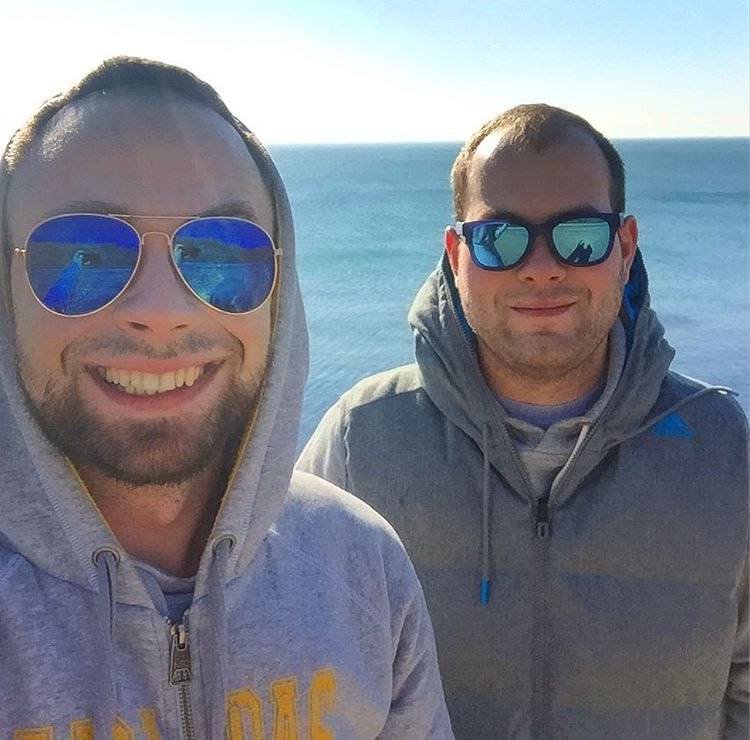
Sergey Burtsev (right) and his subordinate Andrey Zolotukhin. Photo: Alexander Khinshtein / Telegram
A Russian regional minister resigned on Thursday after a federal lawmaker alleged that he was in a same-sex relationship.
Alexander Khinshtein, a deputy in the lower house of Russia’s parliament, published a series of posts on Thursday accusing Sergey Burtsev, a youth minister in Russia’s southern Samara region, of disseminating “LGBT propaganda”, alleging that he was in a same-sex relationship with his subordinate.
Several hours later Burtsev announced his resignation in a VK post, saying that he “absolutely disagreed” with the allegations and “refuted” them. However, he said he would resign anyway as he thought it was wrong to “cast a shadow on the region’s youth policy”.
In his Telegram post, Khinshtein attached documents which he said proved that Burtsev and his subordinate, Andrey Zolotukhin, had gone on a week-long holiday together for Zolotukhin’s birthday and had stayed in the same hotel room.
He also attached what he termed “tender” photos of Zolotukhin and Burtsev from the two men’s social media accounts, and said that the two officials are referred to as a couple among regional bloggers.

Sergey Burtsev (right) and Andrey Zolotukhin. Photo: Alexander Khinshtein / Telegram
Khinshtein wrote that trusting youth policy to “people like Burtsev and Zolotukhin” was “not just dangerous, but criminal”. He added that he had sent official complaints to “all authorities”, including to Dmitry Azarov, governor of the Samara region. He quipped that he hoped Azarov would be “less tolerant of representatives of the LGBT lobby than he is of corrupt officials in his circle”.
A law banning the dissemination of so-called “gay propaganda” to children has been in effect in Russia for the past decade. However, persecution of sexual minorities in Russia has increased dramatically in the past few years. In 2022, the “gay propaganda” law was amended to apply to audiences of any age, not just children, and in November 2023, Russia’s Supreme Court officially deemed the “international LGBT movement” an extremist organisation, effectively outlawing LGBT activism in the country.
In March 2024 alone, the managers of a one Russian gay club were detained for their alleged involvement in an “extremist organisation”, another gay club was forced to close after it was raided by police, and a Russian man was arrested and charged with using “extremist symbols” when he allegedly sent a rainbow flag emoji in a private chat with just 11 members.
